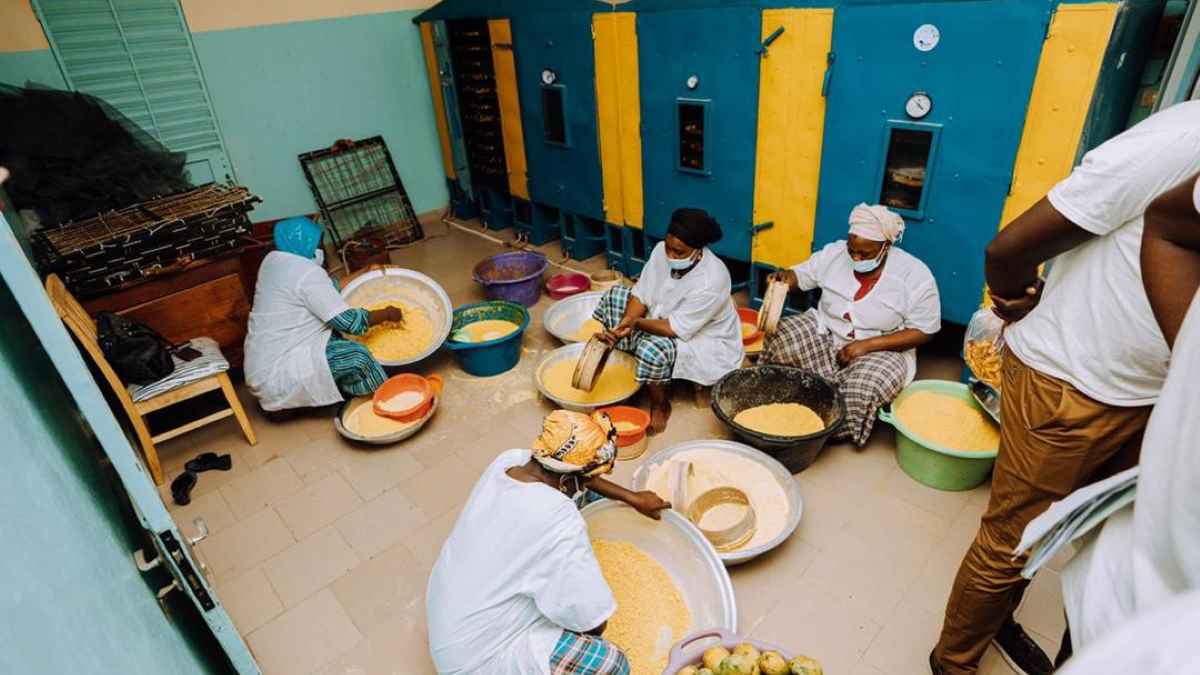The Project to Support and Enhance the Entrepreneurial Initiatives of Women and Young People focuses on training, support for formalising businesses, funding and post-funding follow-up with the beneficiaries to ensure that interventions are sustainable
ABIDJAN, Ivory Coast, August 30, 2023/APO Group/ —
Launched in 2020, the Project to Support and Enhance the Entrepreneurial Initiatives of Women and Young People (PAVIE) (https://apo-opa.info/44tUHxa) implemented in Senegal, is producing significant socioeconomic transformations that are benefiting young people and women. The project has been extended by a year to complete its implementation under optimal conditions, according to the African Development Bank’s (www.AfDB.org) implementation progress and results report, which was published on 14 August 2023. Anouar Ouédraogo, the African Development Bank’s project manager, provides more details about the project, which is well underway to achieving its development objectives.
Three years after the start of the Project to Support and Enhance the Entrepreneurial Initiatives of Women and Young People (https://apo-opa.info/44tUHxa), what are its main achievements?
“The Project to Support and Enhance the Entrepreneurial Initiatives of Women and Young People (https://apo-opa.info/44tUHxa) focuses on training, support for formalising businesses, funding and post-funding follow-up with the beneficiaries to ensure that interventions are sustainable. After three years’ implementation, over 3,200 young people and women have been trained in specific trades and business management, 3,176 businesses that were operating in the informal sector have been formalised and 6,441 businesses have received funding worth a total of 38 billion CFA francs. The main areas of activity involved are agriculture, fishing, fish farming and artisanal activities.
How does technical and financial support relate to the entrepreneurial initiatives of young people and women?
“The project has signed partnership agreements with organisations that have expertise at the national level in various areas of activity and in business management, in order to offer the project beneficiaries, the specific technical support they need. Its main partners are the Small and Medium-Sized Business Development and Supervision Agency (ADEPME), the Senegalese Institute of Agricultural Research (ISRA), the Food Technology Institute (ITA), the Centre for Horticultural Development (CDH) and the Upgrading Office (BMN). In addition to the public bodies listed above, the project recruits consultants to provide post-funding support to beneficiaries.
The project has helped to change the lives of millions of young people and women in all regions of Senegal
Three funding mechanisms are used to provide financial support, namely:
- Direct funding or providing finance to counteract the lack of enthusiasm among financial intermediaries for granting loans to a certain category of businesses, which are deemed too high risk. PAVIE identifies and selects relevant projects, based on criteria approved by the Bank. The lists of selected projects are sent to partner financial institutions. Projects are then distributed based on their monitoring capacity and presence on the ground. Funding is provided using PAVIE resources, at a maximum interest rate of 5 percent.
- Joint funding, which aims to encourage financial institutions to fund structural projects with strong growth potential and create a leverage effect for greater impact.
- Provision of a guarantee, which covers the risk of entrepreneurs defaulting, by positioning them in financial institutions for small and medium-sized businesses.”
Are plans to create jobs for young people and women, promote entrepreneurship and densify the economic landscape for small and medium-sized enterprises meeting expectations?
“It was already apparent, during the project’s mid-term review in May 2022, that the various initiatives formalised and/or funded had helped to generate and/or consolidate 37,286 direct and 30,870 indirect jobs. The project has been successful in structuring sectors such as fishing, for example, by replacing traditional canoes with fibreglass ones. This has enabled young fishers to increase their income threefold and at the same time, combat young people’s temptation to engage in illegal immigration. Female fish wholesalers have also received funding to create an ice-production unit for fish storage and trade. The entire fishing value chain has been given support to improve its organisation. In terms of agriculture, the project has helped strengthen several value chains, such as cashew nuts and rice. An example of the support given to the cashew nut sector can be found in this blog: https://apo-opa.info/3qOZDin. I can confirm that the project is genuinely meeting the population’s expectations in terms of job creation and densifying the economic landscape for small and medium-sized enterprises.
What is the initial feedback you are getting on the project’s impact on its beneficiaries?
“The project has helped to change the lives of millions of young people and women in all regions of Senegal. The testimonials we receive every time we carry out a monitoring exercise reassure us of the relevance of the support provided by the Bank. Moreover, another of the project’s significant impacts is that it has aroused interest among financial institutions in small and medium-sized enterprises run by young people, which they had considered too risky in the past. These institutions are no longer reluctant to grant loans to young entrepreneurs.”
Distributed by APO Group on behalf of African Development Bank Group (AfDB).
